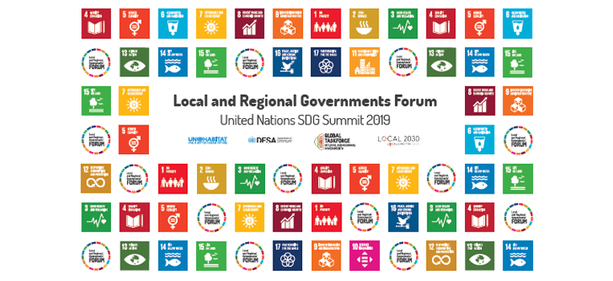Regions also make their voices heard at UN Climate Week

With fewer advocacy resources and repercussion than the leaders of "Fridays for Future" and peculiarly than teenager Greta Thunberg, the regional movement also made its voice heard at the United Nations Climate Summit, which began last September 23 in New York.
On the 24th of September, within the framework of the Forum of Local and Regional Governments, the president of CONGOPE, Pablo Jurado, on behalf of ORU Fogar, and the prefect of Azuay, Yaku Pérez, on behalf of Regions4, stressed once again the role that intermediate governments should have in the implementation of the SDGs. Both affirmed that, in order to counter the situation of climatic emergency, the central states are not the only ones that can act, but also the regions, the cities and "even the parishes", said the president of CONGOPE. Pablo Jurado and Yaku Pérez pointed out that if the objectives of the Paris Agreement are not achieved to a large extent, it is because the current governance does not count on the territory sufficiently. Pablo Jurado also pointed out that regions and cities could channel the impetus and commitment shown by young people on this issue better than anyone else.
The Summit has left some good data: 77 countries have pledged to reduce greenhouse gas emissions to zero by 2050, while 70 have announced that they will push ahead with their national action plans by 2020. Twelve developed countries have pledged resources for the Green Fund, which should enable the promotion of projects in developing countries. ORU Fogar has always claimed that the Fund should be managed by regions. In addition, 100 of the world's top business leaders have announced measures to move their groups towards a green economy.
In New York, however, some failures were also evident, among others, the absence of the United States, which has already withdrawn from the Paris Agreement, or the lack of concreteness in the real measures to achieve a reduction in carbon emissions to zero by 2050. India, China and Turkey, for their part, have not committed themselves to abandoning coal; and many of the countries that have committed themselves do not know how to achieve this reduction in non-renewable energy. This is where the regional world's call for joint efforts and coordination must lie, in favour of structured measures with the participation of the different actors and governments.








































































